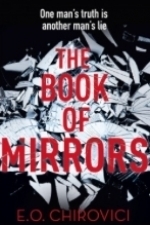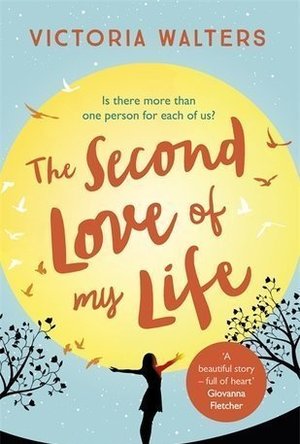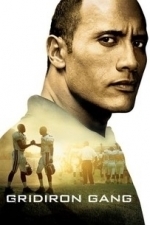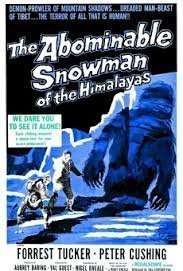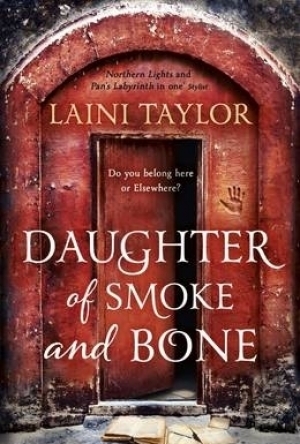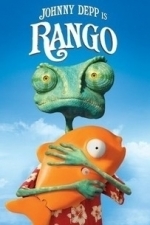Search
Search results
Movie Metropolis (309 KP) rated Suicide Squad (2016) in Movies
Jun 10, 2019
Yet another missfire
It’s hard to remember such a lacklustre summer blockbuster season. From unnecessary sequels to underwhelming novel adaptations, it’s been one disappointment after another.
After the criticism of spring’s Batman v Superman, DC Comics and Warner Bros. really needed a hit on their hands if they were to compete with the Marvel Cinematic Universe. Suicide Squad is their answer, but after an exhaustive marketing campaign, is the final product any good?
To be frank, not really. Director David Ayer has one of the best ensemble casts in years, but wastes them in a film as loud as any Transformers movie, and about as clever as one too.
Figuring they’re all expendable, a U.S. intelligence officer (Viola Davis) decides to assemble a team of dangerous, incarcerated supervillains for a top-secret mission. Now armed with government weapons, Deadshot (Will Smith), Harley Quinn (Margot Robbie), Captain Boomerang (Jai Courtney), Killer Croc and other despicable inmates must learn to work together. Dubbed Task Force X, the criminals unite to battle a mysterious and powerful entity, while the diabolical Joker (Jared Leto) launches an evil agenda of his own.
From the outset, you can tell Suicide Squad isn’t going to waste time with lengthy introductions to its main characters, and this is a breath of fresh air. It gets around this stumbling block in stylish ease as each villain is given his or her own 3 minute backstory, with nifty graphics completing the sequences.
It’s a pleasing start to a film that promised so much in its trailers, but things really start to go downhill from there as our characters are forced to muscle their way through countless faceless enemies, culminating in a derivative battle against, you guessed it, more dull enemies. It’s almost like watching a third-person video game taking place on a massive screen.
Nevertheless, the cast does well with the material they’re given. Will Smith is his ever-likeable self and channels Deadshot from the source material with flair. However, the film really belongs to Margot Robbie and Jared Leto. Their performances are spot on, with Robbie in particular being the film’s ray of sunshine. Leto’s Joker is unfortunately not given anywhere near enough screen time despite the film’s two hour length.
The soundtrack is fantastic. Boasting Eminem, Grace and Panic at the Disco, it’s a pleasant distraction from the at times incomprehensible mayhem taking place on screen.
Special effects wise, Suicide Squad is fine, if a little uninspiring. The editing and cinematography are very clever indeed but the CGI goes from great to poor in a heartbeat. Considering the film’s $175million budget, this is completely unacceptable.
Overall, Suicide Squad promised us so much and has delivered relatively little. Drawing from the exceptional DC Universe, audiences could’ve had a film completely different from the slew of superhero films we are constantly blighted with these days. Instead, we’ve been given one of the most generic yet and it continues 2016’s trend as one of the worst summer blockbuster seasons in recent memory.
https://moviemetropolis.net/2016/08/08/yet-another-misfire-suicide-squad-review/
After the criticism of spring’s Batman v Superman, DC Comics and Warner Bros. really needed a hit on their hands if they were to compete with the Marvel Cinematic Universe. Suicide Squad is their answer, but after an exhaustive marketing campaign, is the final product any good?
To be frank, not really. Director David Ayer has one of the best ensemble casts in years, but wastes them in a film as loud as any Transformers movie, and about as clever as one too.
Figuring they’re all expendable, a U.S. intelligence officer (Viola Davis) decides to assemble a team of dangerous, incarcerated supervillains for a top-secret mission. Now armed with government weapons, Deadshot (Will Smith), Harley Quinn (Margot Robbie), Captain Boomerang (Jai Courtney), Killer Croc and other despicable inmates must learn to work together. Dubbed Task Force X, the criminals unite to battle a mysterious and powerful entity, while the diabolical Joker (Jared Leto) launches an evil agenda of his own.
From the outset, you can tell Suicide Squad isn’t going to waste time with lengthy introductions to its main characters, and this is a breath of fresh air. It gets around this stumbling block in stylish ease as each villain is given his or her own 3 minute backstory, with nifty graphics completing the sequences.
It’s a pleasing start to a film that promised so much in its trailers, but things really start to go downhill from there as our characters are forced to muscle their way through countless faceless enemies, culminating in a derivative battle against, you guessed it, more dull enemies. It’s almost like watching a third-person video game taking place on a massive screen.
Nevertheless, the cast does well with the material they’re given. Will Smith is his ever-likeable self and channels Deadshot from the source material with flair. However, the film really belongs to Margot Robbie and Jared Leto. Their performances are spot on, with Robbie in particular being the film’s ray of sunshine. Leto’s Joker is unfortunately not given anywhere near enough screen time despite the film’s two hour length.
The soundtrack is fantastic. Boasting Eminem, Grace and Panic at the Disco, it’s a pleasant distraction from the at times incomprehensible mayhem taking place on screen.
Special effects wise, Suicide Squad is fine, if a little uninspiring. The editing and cinematography are very clever indeed but the CGI goes from great to poor in a heartbeat. Considering the film’s $175million budget, this is completely unacceptable.
Overall, Suicide Squad promised us so much and has delivered relatively little. Drawing from the exceptional DC Universe, audiences could’ve had a film completely different from the slew of superhero films we are constantly blighted with these days. Instead, we’ve been given one of the most generic yet and it continues 2016’s trend as one of the worst summer blockbuster seasons in recent memory.
https://moviemetropolis.net/2016/08/08/yet-another-misfire-suicide-squad-review/
Zuky the BookBum (15 KP) rated The Book Of Mirrors in Books
Mar 15, 2018
This novel may have been slow but I found its mystery so enticing that I loved moving and learning with each character. So many theories run through this novel that youre never sure what to think, its a great classic murder mystery.
Its only taken me almost a year to knock this book off my Netgalley shelf, but I finally got there! Id seen lots of hype for this one at the beginning of 2017 but I still didnt feel inclined to pick it up back then. Now Ive read it, Im glad that I waited. I think this one would have disappointed me if I had read it in its prime due to its slow nature, but I can appreciate slow books far more now than I could back then.
Like so many other reviewers, I did think this one was pretty slow paced, but I actually quite liked that about the plot. A cold case of over 20 years isnt going to get solved overnight, so it was practical that it took a while to find out what really went on that night. I do think there were some sections of the book that were unnecessary and added to the slowness of the plot, for example when one narrator gets on a plane and theres a whole segment about an irrelevant salesman talking to him and flirting with a girl. That bit wasnt needed in any way for the plot to progress and did just feel like filler bumf, but Ive read books with far worse filler scenes.
This story is told in a few different ways. Its told in the perspective of 3 different people and then also as a book within a book. I really liked the way this was laid out and think having the 3 different tones of voice gave the story some character it could have missed out on had it just stayed with the one narrator.
Each character in this was interesting in their own way, and I liked that each person had their own story to tell while also moving the main mystery along.
In terms of plot, this one wasnt the most innovative or astounding, but there was something enchanting about it. There were a few different theories as to Professor Weiders demise and I liked that it kept you guessing all along. I was actually quite surprised and impressed by the end of the book, the conclusion to the mystery was cleverly thought out and well executed.
Looking at the reviews of this book I think people are being a little harsh. There are lots of books that are slow mysteries but this one seems to be pissing people off more than most. I know its down to everyones own opinion but I dont see what the big issue with this one was. Personally, I enjoyed it.
<i>Thanks to Netgalley and Arrow for giving me the opportunity to read this in exchange for an honest review.</i>
Its only taken me almost a year to knock this book off my Netgalley shelf, but I finally got there! Id seen lots of hype for this one at the beginning of 2017 but I still didnt feel inclined to pick it up back then. Now Ive read it, Im glad that I waited. I think this one would have disappointed me if I had read it in its prime due to its slow nature, but I can appreciate slow books far more now than I could back then.
Like so many other reviewers, I did think this one was pretty slow paced, but I actually quite liked that about the plot. A cold case of over 20 years isnt going to get solved overnight, so it was practical that it took a while to find out what really went on that night. I do think there were some sections of the book that were unnecessary and added to the slowness of the plot, for example when one narrator gets on a plane and theres a whole segment about an irrelevant salesman talking to him and flirting with a girl. That bit wasnt needed in any way for the plot to progress and did just feel like filler bumf, but Ive read books with far worse filler scenes.
This story is told in a few different ways. Its told in the perspective of 3 different people and then also as a book within a book. I really liked the way this was laid out and think having the 3 different tones of voice gave the story some character it could have missed out on had it just stayed with the one narrator.
Each character in this was interesting in their own way, and I liked that each person had their own story to tell while also moving the main mystery along.
In terms of plot, this one wasnt the most innovative or astounding, but there was something enchanting about it. There were a few different theories as to Professor Weiders demise and I liked that it kept you guessing all along. I was actually quite surprised and impressed by the end of the book, the conclusion to the mystery was cleverly thought out and well executed.
Looking at the reviews of this book I think people are being a little harsh. There are lots of books that are slow mysteries but this one seems to be pissing people off more than most. I know its down to everyones own opinion but I dont see what the big issue with this one was. Personally, I enjoyed it.
<i>Thanks to Netgalley and Arrow for giving me the opportunity to read this in exchange for an honest review.</i>
Hazel (1853 KP) rated The Second Love of My Life in Books
Dec 17, 2018
<i>This ARC was provided by the publisher via NetGalley in exchange for an honest review </i>
Victoria Walters’ debut novel, <i>The Second Love of My Life</i>, is a must read for fans of women’s fiction. Set in a coastal village in Cornwall, Walters explores themes of love, grief and survival in this satisfying narrative.
Rose Walker was once known in her small village for being an up-and-coming artist, however now she is branded as the woman who was widowed at twenty four. The story begins two years after the tragic event involving a car collision between her husband, Lucas, and a drunk driver. Since then Rose has wallowed in her grief and not picked up a paintbrush; therefore the upcoming village fair will be the last time she ever sells her paintings.
A stranger, Robert Green, shocks both Rose and the community by purchasing all of her remaining artwork for an extortionate amount of money. Intrigued by this mysterious man, Rose begins to creep back out of her shell, exploring feelings she has not felt for quite some time. However, just as she believes she cold fall in love again, Robert reveals he is not the man she thought he was.
In a way there are two focuses of this novel. One is Rose’s love life and the other is her artwork. The former is obvious from the title alone. “<i>The Second Love of My Life</i>” suggests that the protagonist has been in love before, and falls in love again. There was a danger of this story becoming predictable: girl is heartbroken, girl meets man, girl falls in love, something bad happens, bad thing is resolved; however the inclusion of Rose’s (former) passion for art gives the book a unique streak.
Many artists will be able to relate to (even if they have never been brokenhearted) the feeling of being unable to produce work – a mental block. <i>The Second Love of My Life</i> reveals the trials Rose goes through in order to get her life back together by forcing herself through the barriers her mind has created in order to deal with her deeper emotions. Although it was Robert that inspired Rose to begin painting again, she does this mostly by herself, showing the reader that she is a strong, capable woman who does not need a man to save her – getting the man is an added bonus.
Whether because this is a first novel, or whether it is Walters’ writing style, there are times when it is difficult to tell what is speech and what is the main character’s internal monologue. Occasionally I found myself wondering whether the lack of speech marks was an editing error or intentional.
<i>The Second Love of My Life</i> has been likened to the works of Cecelia Ahern (author of <i>P.S. I Love You</i>), which is admittedly the reason I chose to read it. Whilst Walters’ writing is not quite up there with the popular authors, there is no doubt that one-day she will be. This is an impressive debut and definitely an author to look out for.
Victoria Walters’ debut novel, <i>The Second Love of My Life</i>, is a must read for fans of women’s fiction. Set in a coastal village in Cornwall, Walters explores themes of love, grief and survival in this satisfying narrative.
Rose Walker was once known in her small village for being an up-and-coming artist, however now she is branded as the woman who was widowed at twenty four. The story begins two years after the tragic event involving a car collision between her husband, Lucas, and a drunk driver. Since then Rose has wallowed in her grief and not picked up a paintbrush; therefore the upcoming village fair will be the last time she ever sells her paintings.
A stranger, Robert Green, shocks both Rose and the community by purchasing all of her remaining artwork for an extortionate amount of money. Intrigued by this mysterious man, Rose begins to creep back out of her shell, exploring feelings she has not felt for quite some time. However, just as she believes she cold fall in love again, Robert reveals he is not the man she thought he was.
In a way there are two focuses of this novel. One is Rose’s love life and the other is her artwork. The former is obvious from the title alone. “<i>The Second Love of My Life</i>” suggests that the protagonist has been in love before, and falls in love again. There was a danger of this story becoming predictable: girl is heartbroken, girl meets man, girl falls in love, something bad happens, bad thing is resolved; however the inclusion of Rose’s (former) passion for art gives the book a unique streak.
Many artists will be able to relate to (even if they have never been brokenhearted) the feeling of being unable to produce work – a mental block. <i>The Second Love of My Life</i> reveals the trials Rose goes through in order to get her life back together by forcing herself through the barriers her mind has created in order to deal with her deeper emotions. Although it was Robert that inspired Rose to begin painting again, she does this mostly by herself, showing the reader that she is a strong, capable woman who does not need a man to save her – getting the man is an added bonus.
Whether because this is a first novel, or whether it is Walters’ writing style, there are times when it is difficult to tell what is speech and what is the main character’s internal monologue. Occasionally I found myself wondering whether the lack of speech marks was an editing error or intentional.
<i>The Second Love of My Life</i> has been likened to the works of Cecelia Ahern (author of <i>P.S. I Love You</i>), which is admittedly the reason I chose to read it. Whilst Walters’ writing is not quite up there with the popular authors, there is no doubt that one-day she will be. This is an impressive debut and definitely an author to look out for.
Gareth von Kallenbach (980 KP) rated Gridiron Gang (2006) in Movies
Aug 14, 2019
Often the true mark of cinema, this is the category where you will often find the majority of the award winners. The challenge of combining realistic yet sympathetic characters with gripping stories and emotional themes can be a true challenge, but when it works, this is where Hollywood truly shines.
In his latest film Gridiron Gang Dwayne Johnson, better known as the Rock has an appealing mix of sports action, drama, and comedy on his hands that will not only touch you, but will have you cheering.
The Rock stars as Sean Porter, a former college football star who works in a L.A. Area detention center for juvenile offenders. Saddened by the wasted lives of the young men, Sean looks for them to find an alternative to the life of crime, violence, and early death that so many of his inmates face.
With 75% of offenders likely to become repeat offenders, Sean decides to start a football team with the hope of teaching the young inmates the value of hard work, sacrifice, playing as a team, and duty.
Despite some initial obstacles from the system as well as school leagues hesitant to play against convicted offenders, the team son finds themselves with a full schedule and less than three weeks to go before their first game.
The hard practice and coaching style of Sean wears on the players, but they soon find themselves in their first game against a hardened and proven team which underscores just how much work they have to do.
As pressure mounts from all sides, Sean must find a way to meld his team into a winner and prove that this is a project worth doing and that the young men in his care are not lost causes, but are deserving of a new start.
While much of the film may play out as you would expect with the team coming together to play the big game, what is refreshing about the film is the solid performance of The Rock who shows that he is more than just an action star and is very capable of acting. He mixes his portrayal of Sean with equal amounts toughness and caring, to create what is easily his most mature and well defined character to date.
The supporting cast is good, especially Xzibit as Malcolm Moore, who provides a solid supporting presence to The Rock.
While the film is heavy on football action, it also does not shy away from giving the audience a glimpse of the life that the team comes from and how old rivalries and
hostilities can follow them even when they try to leave them behind with the best of intentions.
The action on the field is first-rate as the game choreography never lets up, and is easily the most accurate portrayal of the sport ever committed to film. You can tell that the cast is playing with heart and passion and not simply going through the motions.
Despite a few predictable moments, Gridiron Gang is a very pleasant surprise that is one of the years most enjoyable and satisfying films.
In his latest film Gridiron Gang Dwayne Johnson, better known as the Rock has an appealing mix of sports action, drama, and comedy on his hands that will not only touch you, but will have you cheering.
The Rock stars as Sean Porter, a former college football star who works in a L.A. Area detention center for juvenile offenders. Saddened by the wasted lives of the young men, Sean looks for them to find an alternative to the life of crime, violence, and early death that so many of his inmates face.
With 75% of offenders likely to become repeat offenders, Sean decides to start a football team with the hope of teaching the young inmates the value of hard work, sacrifice, playing as a team, and duty.
Despite some initial obstacles from the system as well as school leagues hesitant to play against convicted offenders, the team son finds themselves with a full schedule and less than three weeks to go before their first game.
The hard practice and coaching style of Sean wears on the players, but they soon find themselves in their first game against a hardened and proven team which underscores just how much work they have to do.
As pressure mounts from all sides, Sean must find a way to meld his team into a winner and prove that this is a project worth doing and that the young men in his care are not lost causes, but are deserving of a new start.
While much of the film may play out as you would expect with the team coming together to play the big game, what is refreshing about the film is the solid performance of The Rock who shows that he is more than just an action star and is very capable of acting. He mixes his portrayal of Sean with equal amounts toughness and caring, to create what is easily his most mature and well defined character to date.
The supporting cast is good, especially Xzibit as Malcolm Moore, who provides a solid supporting presence to The Rock.
While the film is heavy on football action, it also does not shy away from giving the audience a glimpse of the life that the team comes from and how old rivalries and
hostilities can follow them even when they try to leave them behind with the best of intentions.
The action on the field is first-rate as the game choreography never lets up, and is easily the most accurate portrayal of the sport ever committed to film. You can tell that the cast is playing with heart and passion and not simply going through the motions.
Despite a few predictable moments, Gridiron Gang is a very pleasant surprise that is one of the years most enjoyable and satisfying films.
Lucy Buglass (45 KP) rated Knives Out (2019) in Movies
Oct 24, 2019
Due to its ensemble cast, gorgeous aesthetics and whodunit storyline, it’s safe to say that I had high expectations for Knives Out.
I’m pleased to report that it surpassed each and every one of them.
Rian Johnson’s tale of mystery follows the death of renowned crime novelist Harlan Thrombey (Christopher Plummer), which took place after his 85th birthday. Presumed to be a murder, his eccentric and very large family are soon under investigation by Detective Benoit Blanc (Daniel Craig) and his team.
Straight away, Daniel Craig steals the show with his hilarious performance of Detective Blanc. From his deep Southern American drawl to his quirky mannerisms, this is so far removed from what you’d expect from a Craig performance. I’ve never seen him have this much fun in a role before.
He’s tasked with getting to the bottom of what happened, which involves a delightful series of interviews in which the family are sitting in front of several display knives, just one of the many eccentricities of the Thrombey manor house. In terms of set design it’s just glorious to look at, and even one of the characters compares it to a Cluedo board.
Even the characters themselves are quirky enough to be boxed up inside the classic board game, and could give the likes of Miss Scarlet and Colonel Mustard a run for their money.
Characters include Thrombey’s daughter and real estate mogul Linda Drysdale (Jamie Lee Curtis), her husband Richard (Don Johnson), and outcast trust fund son Ransom (Chris Evans), who form quite the dysfunctional family even when you remove them from the bigger picture.
Then there’s the rather insufferable, yet hugely entertaining, lifestyle guru Joni Thrombey (Toni Collette) and her daughter and social activist Meg (Katherine Langford). These two characters are parodies of popular blogging culture and ‘social justice warriors’, and they’re hilarious.
Each character has been wonderfully crafted by Rian Johnson, who both wrote and directed Knives Out. They’re essentially caricatures, but the result of this is a thoroughly entertaining cinema experience. What a brilliant use of such a talented cast.
The only seemingly normal person wrapped up in all this is caretaker Marta Cabrera (Ana de Armas), who acted as both a friend and nurse to Harlan prior to his death. Even against a backdrop of such bold characters, de Armas’ performance shines just as brightly.
Mysteries are hard to get right, and being able to predict the ending is a bragging right for many cinephiles. Well unfortunately, this script absolutely floored me with how fantastic it was, and I was unable to predict anything that went down. Johnson has serious talent when it comes to crafting a murder-mystery.
Don’t even get me started on how gorgeous the wardrobe in this film is either. If anyone knows where I can get Jamie Lee Curtis’ striking red suit, you need to tell me immediately.
Watching Knives Out was the most fun I’ve had in the cinema this year, perhaps ever. I was fully engrossed from start to finish, and walked out with the biggest smile on my face.
If you see one film this autumn, make it this one. You won’t regret it.
I’m pleased to report that it surpassed each and every one of them.
Rian Johnson’s tale of mystery follows the death of renowned crime novelist Harlan Thrombey (Christopher Plummer), which took place after his 85th birthday. Presumed to be a murder, his eccentric and very large family are soon under investigation by Detective Benoit Blanc (Daniel Craig) and his team.
Straight away, Daniel Craig steals the show with his hilarious performance of Detective Blanc. From his deep Southern American drawl to his quirky mannerisms, this is so far removed from what you’d expect from a Craig performance. I’ve never seen him have this much fun in a role before.
He’s tasked with getting to the bottom of what happened, which involves a delightful series of interviews in which the family are sitting in front of several display knives, just one of the many eccentricities of the Thrombey manor house. In terms of set design it’s just glorious to look at, and even one of the characters compares it to a Cluedo board.
Even the characters themselves are quirky enough to be boxed up inside the classic board game, and could give the likes of Miss Scarlet and Colonel Mustard a run for their money.
Characters include Thrombey’s daughter and real estate mogul Linda Drysdale (Jamie Lee Curtis), her husband Richard (Don Johnson), and outcast trust fund son Ransom (Chris Evans), who form quite the dysfunctional family even when you remove them from the bigger picture.
Then there’s the rather insufferable, yet hugely entertaining, lifestyle guru Joni Thrombey (Toni Collette) and her daughter and social activist Meg (Katherine Langford). These two characters are parodies of popular blogging culture and ‘social justice warriors’, and they’re hilarious.
Each character has been wonderfully crafted by Rian Johnson, who both wrote and directed Knives Out. They’re essentially caricatures, but the result of this is a thoroughly entertaining cinema experience. What a brilliant use of such a talented cast.
The only seemingly normal person wrapped up in all this is caretaker Marta Cabrera (Ana de Armas), who acted as both a friend and nurse to Harlan prior to his death. Even against a backdrop of such bold characters, de Armas’ performance shines just as brightly.
Mysteries are hard to get right, and being able to predict the ending is a bragging right for many cinephiles. Well unfortunately, this script absolutely floored me with how fantastic it was, and I was unable to predict anything that went down. Johnson has serious talent when it comes to crafting a murder-mystery.
Don’t even get me started on how gorgeous the wardrobe in this film is either. If anyone knows where I can get Jamie Lee Curtis’ striking red suit, you need to tell me immediately.
Watching Knives Out was the most fun I’ve had in the cinema this year, perhaps ever. I was fully engrossed from start to finish, and walked out with the biggest smile on my face.
If you see one film this autumn, make it this one. You won’t regret it.
Darren (1599 KP) rated The Abominable Snowman (1957) in Movies
Jul 8, 2019 (Updated Oct 24, 2019)
Due to its ensemble cast, gorgeous aesthetics and whodunit storyline, it’s safe to say that I had high expectations for Knives Out.
I’m pleased to report that it surpassed each and every one of them.
Rian Johnson’s tale of mystery follows the death of renowned crime novelist Harlan Thrombey (Christopher Plummer), which took place after his 85th birthday. Presumed to be a murder, his eccentric and very large family are soon under investigation by Detective Benoit Blanc (Daniel Craig) and his team.
Straight away, Daniel Craig steals the show with his hilarious performance of Detective Blanc. From his deep Southern American drawl to his quirky mannerisms, this is so far removed from what you’d expect from a Craig performance. I’ve never seen him have this much fun in a role before.
He’s tasked with getting to the bottom of what happened, which involves a delightful series of interviews in which the family are sitting in front of several display knives, just one of the many eccentricities of the Thrombey manor house. In terms of set design it’s just glorious to look at, and even one of the characters compares it to a Cluedo board.
Even the characters themselves are quirky enough to be boxed up inside the classic board game, and could give the likes of Miss Scarlet and Colonel Mustard a run for their money.
Characters include Thrombey’s daughter and real estate mogul Linda Drysdale (Jamie Lee Curtis), her husband Richard (Don Johnson), and outcast trust fund son Ransom (Chris Evans), who form quite the dysfunctional family even when you remove them from the bigger picture.
Then there’s the rather insufferable, yet hugely entertaining, lifestyle guru Joni Thrombey (Toni Collette) and her daughter and social activist Meg (Katherine Langford). These two characters are parodies of popular blogging culture and ‘social justice warriors’, and they’re hilarious.
Each character has been wonderfully crafted by Rian Johnson, who both wrote and directed Knives Out. They’re essentially caricatures, but the result of this is a thoroughly entertaining cinema experience. What a brilliant use of such a talented cast.
The only seemingly normal person wrapped up in all this is caretaker Marta Cabrera (Ana de Armas), who acted as both a friend and nurse to Harlan prior to his death. Even against a backdrop of such bold characters, de Armas’ performance shines just as brightly.
Mysteries are hard to get right, and being able to predict the ending is a bragging right for many cinephiles. Well unfortunately, this script absolutely floored me with how fantastic it was, and I was unable to predict anything that went down. Johnson has serious talent when it comes to crafting a murder-mystery.
Don’t even get me started on how gorgeous the wardrobe in this film is either. If anyone knows where I can get Jamie Lee Curtis’ striking red suit, you need to tell me immediately.
Watching Knives Out was the most fun I’ve had in the cinema this year, perhaps ever. I was fully engrossed from start to finish, and walked out with the biggest smile on my face.
If you see one film this autumn, make it this one. You won’t regret it.
I’m pleased to report that it surpassed each and every one of them.
Rian Johnson’s tale of mystery follows the death of renowned crime novelist Harlan Thrombey (Christopher Plummer), which took place after his 85th birthday. Presumed to be a murder, his eccentric and very large family are soon under investigation by Detective Benoit Blanc (Daniel Craig) and his team.
Straight away, Daniel Craig steals the show with his hilarious performance of Detective Blanc. From his deep Southern American drawl to his quirky mannerisms, this is so far removed from what you’d expect from a Craig performance. I’ve never seen him have this much fun in a role before.
He’s tasked with getting to the bottom of what happened, which involves a delightful series of interviews in which the family are sitting in front of several display knives, just one of the many eccentricities of the Thrombey manor house. In terms of set design it’s just glorious to look at, and even one of the characters compares it to a Cluedo board.
Even the characters themselves are quirky enough to be boxed up inside the classic board game, and could give the likes of Miss Scarlet and Colonel Mustard a run for their money.
Characters include Thrombey’s daughter and real estate mogul Linda Drysdale (Jamie Lee Curtis), her husband Richard (Don Johnson), and outcast trust fund son Ransom (Chris Evans), who form quite the dysfunctional family even when you remove them from the bigger picture.
Then there’s the rather insufferable, yet hugely entertaining, lifestyle guru Joni Thrombey (Toni Collette) and her daughter and social activist Meg (Katherine Langford). These two characters are parodies of popular blogging culture and ‘social justice warriors’, and they’re hilarious.
Each character has been wonderfully crafted by Rian Johnson, who both wrote and directed Knives Out. They’re essentially caricatures, but the result of this is a thoroughly entertaining cinema experience. What a brilliant use of such a talented cast.
The only seemingly normal person wrapped up in all this is caretaker Marta Cabrera (Ana de Armas), who acted as both a friend and nurse to Harlan prior to his death. Even against a backdrop of such bold characters, de Armas’ performance shines just as brightly.
Mysteries are hard to get right, and being able to predict the ending is a bragging right for many cinephiles. Well unfortunately, this script absolutely floored me with how fantastic it was, and I was unable to predict anything that went down. Johnson has serious talent when it comes to crafting a murder-mystery.
Don’t even get me started on how gorgeous the wardrobe in this film is either. If anyone knows where I can get Jamie Lee Curtis’ striking red suit, you need to tell me immediately.
Watching Knives Out was the most fun I’ve had in the cinema this year, perhaps ever. I was fully engrossed from start to finish, and walked out with the biggest smile on my face.
If you see one film this autumn, make it this one. You won’t regret it.
EmersonRose (320 KP) rated In The Dark Corner I Stood Alone in Books
Nov 20, 2019
I stood alone in a dark corner. My imagination ran wild.”
In the Dark Corner, I stood Alone is a collection of short stories by author Petra Pavlikova, published on June 12th, 2018. These short stories pull together themes of women and fairytales. Telling stories about strong women in stressful situations, difficult because they are real, and how these women pull through, with a healthy dose of the fantastical. The collection itself is a short and easy read as the stories range in length from 5-20 pages each. I loved the beautiful imagery created in these stories as they each take you on fantastic journeys.
The characters in these stories are such strong and relatable women that I fell in love with each one as I read their story. From beginning to end this book captured this beautiful whimsey that kept me captivated in each story. As you read, each has a distinctive story to tell, but they are all in the same unique voice that has a charming but straightforward tone that captures the fairytale quality splendidly. I think that my favorite story may be The Smell of Sweet Lavender, as it tackles a heart-wrenching tale of trying to be true to yourself and the cost it sometimes has on those that you love most. But each was so unique that they held different messages and meanings to them, that I could see myself having a different favorite depending on what mood I was in at the time. This is definitely one of those books that I could see myself re-reading whenever I just wanted to curl up with a sweet set of stories that allow my imagination wander in the realm of fairies and distant kingdoms. The magic in them creates a tone but the themes within them last without extra flare, making them that much more poignant.
The other thing that makes this book really stand out is the remarkable work of the illustrator Anastasia Telegina. From the small flowers and bright colored pages to the exquisite images of the women in the book, the watercolor work is astounding and fits in perfectly with the wanderlust tone of the writing. Each time I saw that stories full image, I was blown away by the beauty and talent. They play with your imagination rather than entirely putting images in your head, keeping the fluidity of the imagination intact while still creating magnificent images. Creating perhaps what is more what a child might imagine from what is described that a realistic picture. This pair clearly makes an excellent team.
These are stories for almost any age in the themes it tackles and the beautiful way in which they are told. While some of the ideas may be intense for a younger audience, the way in which the stories are told make them accessible to any reader. They are important topics dealt with in a way that is natural and very real world, while held within a slightly more fantastical space. I very much enjoyed reading this book and would definitely recommend it. I will be keeping an eye out to read more from this author. Five Stars.
In the Dark Corner, I stood Alone is a collection of short stories by author Petra Pavlikova, published on June 12th, 2018. These short stories pull together themes of women and fairytales. Telling stories about strong women in stressful situations, difficult because they are real, and how these women pull through, with a healthy dose of the fantastical. The collection itself is a short and easy read as the stories range in length from 5-20 pages each. I loved the beautiful imagery created in these stories as they each take you on fantastic journeys.
The characters in these stories are such strong and relatable women that I fell in love with each one as I read their story. From beginning to end this book captured this beautiful whimsey that kept me captivated in each story. As you read, each has a distinctive story to tell, but they are all in the same unique voice that has a charming but straightforward tone that captures the fairytale quality splendidly. I think that my favorite story may be The Smell of Sweet Lavender, as it tackles a heart-wrenching tale of trying to be true to yourself and the cost it sometimes has on those that you love most. But each was so unique that they held different messages and meanings to them, that I could see myself having a different favorite depending on what mood I was in at the time. This is definitely one of those books that I could see myself re-reading whenever I just wanted to curl up with a sweet set of stories that allow my imagination wander in the realm of fairies and distant kingdoms. The magic in them creates a tone but the themes within them last without extra flare, making them that much more poignant.
The other thing that makes this book really stand out is the remarkable work of the illustrator Anastasia Telegina. From the small flowers and bright colored pages to the exquisite images of the women in the book, the watercolor work is astounding and fits in perfectly with the wanderlust tone of the writing. Each time I saw that stories full image, I was blown away by the beauty and talent. They play with your imagination rather than entirely putting images in your head, keeping the fluidity of the imagination intact while still creating magnificent images. Creating perhaps what is more what a child might imagine from what is described that a realistic picture. This pair clearly makes an excellent team.
These are stories for almost any age in the themes it tackles and the beautiful way in which they are told. While some of the ideas may be intense for a younger audience, the way in which the stories are told make them accessible to any reader. They are important topics dealt with in a way that is natural and very real world, while held within a slightly more fantastical space. I very much enjoyed reading this book and would definitely recommend it. I will be keeping an eye out to read more from this author. Five Stars.
Sophia (Bookwyrming Thoughts) (530 KP) rated Daughter of Smoke and Bone in Books
Jan 23, 2020
How I really feel these days: read/listen to a book, pull out the overall point of the book, give brief information on why I liked/disliked the book, the end. Or, go through that and the words come as I start typing the review, and it may or may not be in an organized manner. That's for your judgment, I suppose.
It's precisely how I feel with <i>Daughter of Smoke and Bone</i>. It's interesting with all the seraphs and chimaera (I keep wanting to call that chimera) being at war with each other, but I pretty much picked out one very important theme in this entire book.
Reincarnation (or resurrection in this case) and self-discovery.
Karou is a very mysterious person (at least, she likes to keep it that way). From early on, she doesn't have a family (aside from a surrogate one), doesn't talk about herself, and avoids questions from anyone who actually want to know who she is aside from the fact she is fantastic at drawing mystical creatures. She also deals with wishes, her hair is blue (really cool, by the way), and speaks over twenty languages. But she still doesn't understand who she really is, and that remains the constant until Karou goes on an errand where she comes across Akiva, a seraph with fire in his eyes.
I'm not really sure how I feel about Akiva. Although Laini gives information about his past, especially with Madrigal's memories, I'm pretty indifferent towards him. He's a seraph, fell in love with Madrigal, and wants peace among the seraph and chimaera, but otherwise, I feel like he's just appropriately placed in the story.
<i>Daughter of Smoke and Bone</i> is also one of those books in which I believe Laini does a fantastic job with flashbacks. I'm generally not a huge fan of flashbacks, because while I know they play an important role most of the time (authors don't do things in their novel without reason), they sometimes add more bulk or it doesn't really fit well in the story.
In <i>Daughter of Smoke and Bone's</i> case, it would have been a really bad idea not to have so many flashbacks later on in the story. From what I've read up to Madrigal's memories, Karou is a enigmatic person. Madrigal's memories add on to Karou as a whole, and I feel it makes Karou more developed than she would have been had Laini not written in the most important aspects of Madrigal's life.
<i>Daughter of Smoke and Bone</i> has it's very gruesome parts (don't tell me listening to a description of someone being beheaded is <em>not</em> gruesome), but I enjoyed it and I'm looking forward to listening to the second book (bonus points because it's the same narrator for the entire trilogy).
Have I mentioned I absolutely <em>adore</em> Zuzanna? *kiss/punch*
<a href="https://bookwyrmingthoughts.com/audiobook-review-daughter-of-smoke-and-bone-by-laini-taylor/"; target="_blank">This review was originally posted on Bookwyrming Thoughts</a>
It's precisely how I feel with <i>Daughter of Smoke and Bone</i>. It's interesting with all the seraphs and chimaera (I keep wanting to call that chimera) being at war with each other, but I pretty much picked out one very important theme in this entire book.
Reincarnation (or resurrection in this case) and self-discovery.
Karou is a very mysterious person (at least, she likes to keep it that way). From early on, she doesn't have a family (aside from a surrogate one), doesn't talk about herself, and avoids questions from anyone who actually want to know who she is aside from the fact she is fantastic at drawing mystical creatures. She also deals with wishes, her hair is blue (really cool, by the way), and speaks over twenty languages. But she still doesn't understand who she really is, and that remains the constant until Karou goes on an errand where she comes across Akiva, a seraph with fire in his eyes.
I'm not really sure how I feel about Akiva. Although Laini gives information about his past, especially with Madrigal's memories, I'm pretty indifferent towards him. He's a seraph, fell in love with Madrigal, and wants peace among the seraph and chimaera, but otherwise, I feel like he's just appropriately placed in the story.
<i>Daughter of Smoke and Bone</i> is also one of those books in which I believe Laini does a fantastic job with flashbacks. I'm generally not a huge fan of flashbacks, because while I know they play an important role most of the time (authors don't do things in their novel without reason), they sometimes add more bulk or it doesn't really fit well in the story.
In <i>Daughter of Smoke and Bone's</i> case, it would have been a really bad idea not to have so many flashbacks later on in the story. From what I've read up to Madrigal's memories, Karou is a enigmatic person. Madrigal's memories add on to Karou as a whole, and I feel it makes Karou more developed than she would have been had Laini not written in the most important aspects of Madrigal's life.
<i>Daughter of Smoke and Bone</i> has it's very gruesome parts (don't tell me listening to a description of someone being beheaded is <em>not</em> gruesome), but I enjoyed it and I'm looking forward to listening to the second book (bonus points because it's the same narrator for the entire trilogy).
Have I mentioned I absolutely <em>adore</em> Zuzanna? *kiss/punch*
<a href="https://bookwyrmingthoughts.com/audiobook-review-daughter-of-smoke-and-bone-by-laini-taylor/"; target="_blank">This review was originally posted on Bookwyrming Thoughts</a>
Gareth von Kallenbach (980 KP) rated Rango (2011) in Movies
Aug 7, 2019
Y’all want to know what Rango is about? Have a seat by the camp fire and I’ll tell ya. The chameleon that would one day be known as Rango (voiced by Johnny Depp) begins the movie as a pet, traveling across the desert with a human family in their SUV. However, fate or perhaps the Spirit of the West (voiced by Timothy Olyphant) has other plans for him. Soon he is separated from his human family and he meets a wise armadillo named Roadkill (voiced by Alfred Molina) who tells him about the Spirit of the West, fate and, more importantly to him, where to find water.
Fans of Johnny Depp will recognize an amazing reference, tribute if you will, to the 1998 movie Fear and Loathing in Las Vegas that starred the actor. On his way to the nearest town where he can get some water, he meets one of the locals, a young lady lizard named Beans (voiced by Isla Fisher) who offers him a ride to the edge of town, a town aptly named Dirt. As he tries to fit in with the locals he realizes that he can reinvent himself here, so he gives himself the name Rango but thanks to a lie that he told to the guys in the saloon he soon finds himself in a showdown with one of the meanest gangs in town. Through a very funny turn of events he not only survives but becomes the town hero. In honor of his victory the Mayor (voiced by Ned Beatty) offers him the job of sheriff which Rango gladly accepts.
Soon after, the limited water supply in town disappears and it is up to Rango (along with some quirky townfolk) to solve the mystery and save Dirt. Along his journey, Rango eventually comes to a point where he must decide what kind of lizard he wants to be, a hero of the people or a person who just plays one. Will he make the right choices? Will he find the water? Will he save the town? See the movie to find out the answers to these questions and more.
I have seen many family movies that were very entertaining for the kids but extremely boring for the adults. Luckily Rangois not one of those movies. Not only does the movie have a very talented voice cast, it also has entertaining action that enhances the story instead of over-powering or taking away from it. The visuals were so realistic that at times I almost forgot it was an animated film and it has plenty of humor to make the audience laugh, regardless of age.
At the end of the movie as we all were heading towards the exit I overhead a person saying to their friends how the movie actually felt like the old westerns that they had watched growing up and I found myself agreeing. The story unfolded with a natural flow, beautiful scenery and wild west action that kept the audience engaged from start to finish.
Fans of Johnny Depp will recognize an amazing reference, tribute if you will, to the 1998 movie Fear and Loathing in Las Vegas that starred the actor. On his way to the nearest town where he can get some water, he meets one of the locals, a young lady lizard named Beans (voiced by Isla Fisher) who offers him a ride to the edge of town, a town aptly named Dirt. As he tries to fit in with the locals he realizes that he can reinvent himself here, so he gives himself the name Rango but thanks to a lie that he told to the guys in the saloon he soon finds himself in a showdown with one of the meanest gangs in town. Through a very funny turn of events he not only survives but becomes the town hero. In honor of his victory the Mayor (voiced by Ned Beatty) offers him the job of sheriff which Rango gladly accepts.
Soon after, the limited water supply in town disappears and it is up to Rango (along with some quirky townfolk) to solve the mystery and save Dirt. Along his journey, Rango eventually comes to a point where he must decide what kind of lizard he wants to be, a hero of the people or a person who just plays one. Will he make the right choices? Will he find the water? Will he save the town? See the movie to find out the answers to these questions and more.
I have seen many family movies that were very entertaining for the kids but extremely boring for the adults. Luckily Rangois not one of those movies. Not only does the movie have a very talented voice cast, it also has entertaining action that enhances the story instead of over-powering or taking away from it. The visuals were so realistic that at times I almost forgot it was an animated film and it has plenty of humor to make the audience laugh, regardless of age.
At the end of the movie as we all were heading towards the exit I overhead a person saying to their friends how the movie actually felt like the old westerns that they had watched growing up and I found myself agreeing. The story unfolded with a natural flow, beautiful scenery and wild west action that kept the audience engaged from start to finish.

Make It Rain: The Love of Money
Games, Finance and Stickers
App
How fast can you make it rain? No, really… how fast??? Make it Rain: Love of Money is a...

